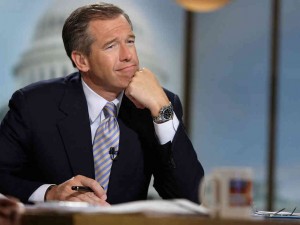By Daniel Greenberg
Brian Williams probably won’t forget this week anytime soon. The NBC newsreader was suspended without pay because of the controversy over his mistaken claim that his helicopter had been hit by a rocket-propelled grenade in Iraq. On the surface, this scandal looks a lot like a vain and deceitful man’s attempt to cover himself with supposed glory. After all, how could anyone make an honest mistake about something like that?
It’s easier than you think. Human beings are surprisingly prone to creating false memories—memories of events that never actually happened. False memories aren’t lies; we firmly believe that they’re true, and we could testify to them in court with a clear conscience. They’re not a sign of age or a failing memory; anyone at any age is susceptible, and we’ve probably all had moments when we “could have sworn” that we sent that email or paid that bill, only to find out that we didn’t.
Still, memories for shocking events (and being hit by an RPG would certainly qualify) seem like they should be different. Take our memories of momentous historical events, such as the September 11th attacks, the Challenger disaster, the Kennedy assassination, or whatever the key event of your generation might be. These are known as flashbulb memories, and they’re among the most vivid and emotional memories we possess. On top of that, we tend to have near-absolute confidence in their accuracy. We’ll often say that these memories are burned into our minds—that we could not possibly forget.
Yet this confidence is misplaced, because flashbulb memories are unreliable too. The late psychologist Ulric Neisser vividly remembered an announcer interrupting a radio broadcast of a baseball game to announce that Pearl Harbor had been bombed—except that the bombing took place on December 7, 1941, and no baseball is played in December. The author and physician Susan Koven remembers being in kindergarten when President Kennedy was assassinated, at least until she did the arithmetic and discovered that she was actually in first grade. Even former President George W. Bush has a false flashbulb memory for the September 11th attacks. He claimed on several occasions that he learned about the event that day by watching footage of the first plane hitting the tower, but he could not possibly have seen it because no such footage was available at the time.
These are anecdotes, but scientific evidence tells the same tale. Jennifer Talarico and David Rubin, who were colleagues of mine when I was at Duke University, studied memories for the September 11th attacks. They tested Duke undergraduates on September 12th, the day after the attacks, then tested them again some time later. They found that flashbulb memories were just as inaccurate as ordinary memories—most people changed their story in some way—yet people were far more confident in the flashbulb memories.
Why does this happen? In part, the answer is that humans are imaginative but fallible creatures, and we’re good at remembering generalities but not so good at remembering specifics. We’re always envisioning what might have happened, even while reminiscing about what actually took place, and truth and fantasy can blend together, especially as our original memories start to fade. The false memory story isn’t made up out of thin air; it changes a little bit with each retelling, like a message in a game of Telephone, until it bears little resemblance to the initial event. Williams’s stories show the signs of just this sort of change: He begins by saying that the helicopter in front of him had been hit by an RPH, then later says his own helicopter took gunfire, then adds in an RPG. Bit by bit, the story shifts.
That doesn’t answer the most important question, though. Granted, false memories exist, even for traumatic or shocking events. But liars and frauds exist too, and we don’t want them to be able to get off scot-free by claiming false memory as a defense. So how do we distinguish false memories from flat-out lies? Unfortunately, that’s where science fails us; we just don’t have any reliable way to tell.
In Williams’s case, it might not matter. Sure, nobody has any use for a dishonest reporter, but an honest yet unreliable one doesn’t seem that useful either; one might expect that a reporter like Williams would know better than to trust his own fallible recollections. Is he a liar or a victim of false memory? In the end, only he can say—and at this point, even he might not know for sure.
Greenberg, D. L. (2004). President Bush’s false “flashbulb” memory of 9/11/01. Applied Cognitive Psychology, 18, 363-370.
Talarico, J. M., & Rubin, D. C. (2003). Confidence, not consistency, characterizes flashbulb memories. Psychological Science, 14, 455-461.
Daniel Greenberg, Assistant Professor in the Department of Psychology, is an expert on human memory.

